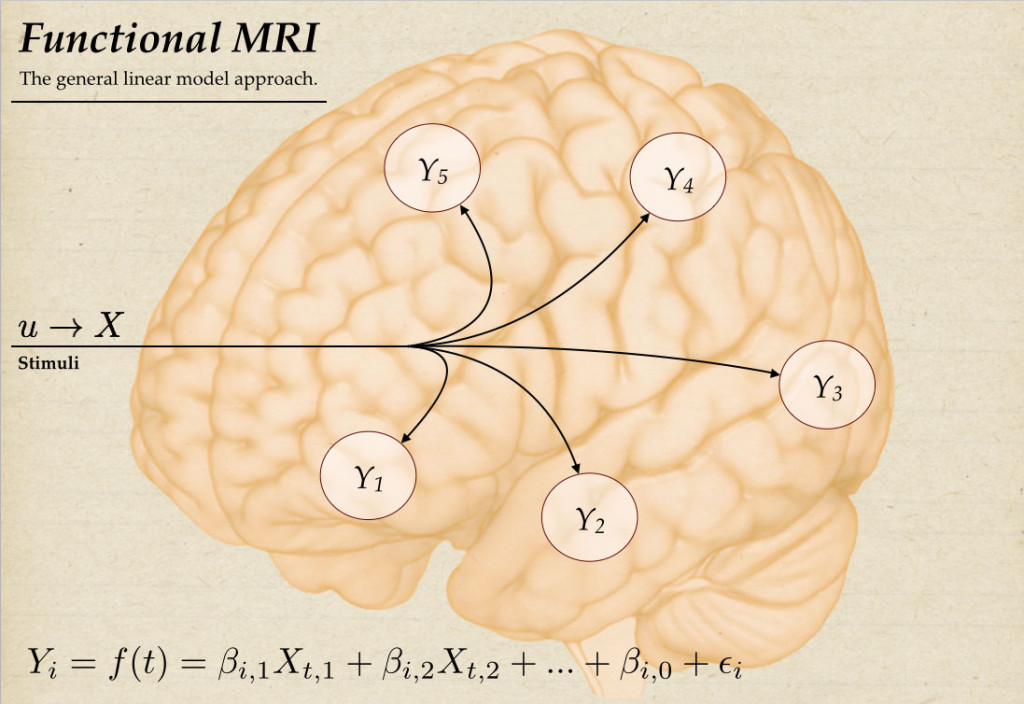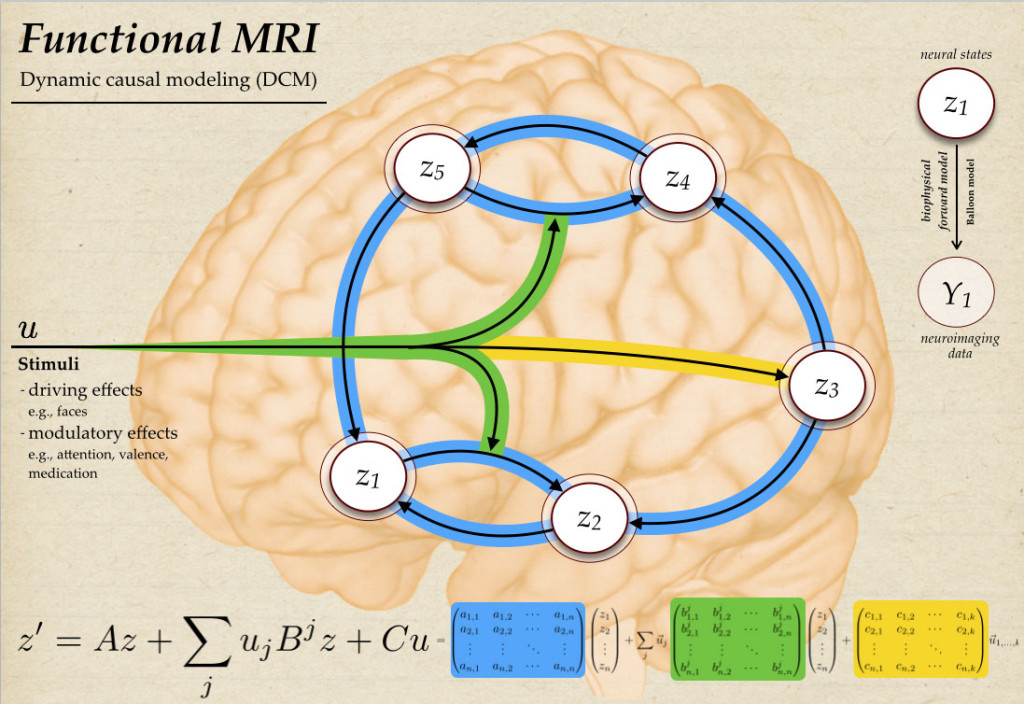Dynamic causal modeling (DCM) is a hypothesis-‐‑driven analysis approach based on Bayesian model comparison procedures (Bayes, 1763; Friston et al., 2003; Jeffkeys, 1939). DCM can be seen as an extension or generalization of fMRI analysis based on the general linear model.
The application of DCM allows for creation of neural models to assess the dynamic behavior of specific brain regions in correspondence with their causal relationships under the influence of external perturbations, such as the applied experimental conditions. In this framework, the brain is treated as a deterministic nonlinear dynamic system, expressed by differential equations to estimate parameters for effective connectivity. Using a biophysical forward model, the marginal likelihood (i.e., model evidence) of the neuronal model is estimated with respect to the empirically observed changes in BOLD signal.



